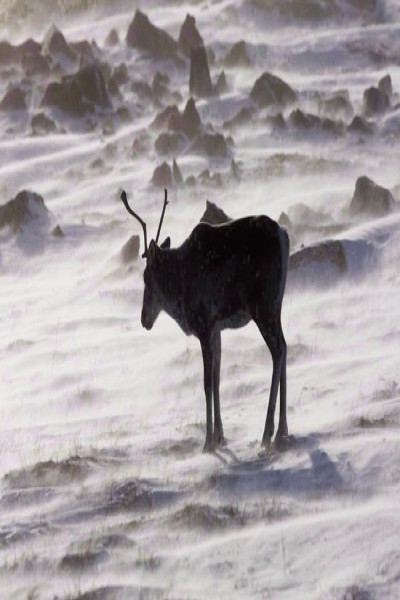
EDMONTON — Several First Nations and Indigenous groups have asked the federal government to step in and protect some endangered caribou herds on provincial land in Alberta.
In a letter to federal Environment Minister Catherine McKenna, the coalition said Alberta hasn't met Ottawa's deadline for coming up with a plan to save five threatened herds in the northeastern part of the province heavily impacted by forestry and oilsands development.
They said if Alberta won't make the move, Ottawa should.
"Despite the good efforts by some companies, there's nothing right now that prevents a new oil and gas well or a new oilsands mine or a harvest cutblock from destroying critical habitat," said Barry Robinson of Ecojustice, one of the groups that signed the letter.
Others included the Cold Lake First Nations, the David Suzuki Foundation and the Alberta Wilderness Association.
Robinson said McKenna could use the Species At Risk Act which gives Ottawa the power to issue a "safety blanket" order.
That order, said Robinson, obliges the federal minister to step in if provincial protections for critical habitat of an endangered species on Crown land are inadequate.
The formal petition delivered to McKenna on Monday, along with the letter, goes through 11 Alberta laws and concludes none offers legal protections, although Robinson noted some companies try to minimize damage to caribou herds.
Alberta and six other provinces continue to fail to meet a federal deadline to release recovery plans for threatened herds in their jurisdictions. That deadline passed in October.
McKenna has said her office will study measures taken by the provinces and decide in April whether those protections are enough.
It's time for action, said Robinson, who added Ottawa has already let its own deadlines slip by. The 2012 federal document that contained the deadline the provinces have now missed was itself five years late.
"Given the purpose of the Species At Risk Act, very little has been done, and it's been 10 years since the species was listed. It's time for either the province or the federal minister to step up."
The Cold Lake First Nations said no recovery plans have been developed for the herds they depend on despite new industrial disturbances being approved regularly.
"They (Alberta) had five years and where are the plans?" asked band Councillor Kelsey Jacko in an email.
"I don’t see them. And the situation is getting worse. Something has to be done."
Alberta did not immediately respond to a request for comment. It has previously said it's trying to find ways to protect habitat with as little economic impact as possible.
Caribou are in decline across the country.
A 2015 federal assessment found 81 per cent of Canada's 51 woodland caribou populations are declining. The reasons are thought to stem from habitat loss and damage from forestry, energy development and wildfires.
The assessment concluded those populations will decline at least another 30 per cent in the coming years.
Federal guidelines say two-thirds of habitat on critical caribou range should be undisturbed. Habitat for most of the five herds mentioned in the letter is more than 70 per cent disturbed.
— Follow Bob Weber on Twitter at @row1960
Bob Weber, The Canadian Press
Share This:




 CDN NEWS |
CDN NEWS |  US NEWS
US NEWS 


























